#docufilm
Photo

A Place of Rage, (52min, 1991), (still), Directed & Produced by Pratibha Parmar, Featuring Angela Davis, June Jordan, Trinh T. Minh-ha, and Alice Walker, Women Make Movies, New York, NY [Independent Cinema Office, London]
#art#film#docufilm#still#pratibha parmar#angela davis#june jordan#trinh t. minh ha#alice walker#women make movies
180 notes
·
View notes
Photo


Eurovision (2022) - “Mahmood” Docufilm
#blahmood#blanco#mahmood#italian tag#italiansedit#esc#esc 2022#eurovision#eurovision 2022#alessandro mahmoud#blanchitobebe#riccardo fabbriconi#escita#escita 2022#docufilm#documovie#*#*blahmood#the things i had to do to get this#and other tidbits#GIRLS so sassy
68 notes
·
View notes
Text

Buon Ferragosto! ☀️🦀
8 notes
·
View notes
Text
Le autorità declinano gli inviti, se e quando rispondono.
Serve Benigni che ammicca a Mattarella che omaggia la libertà che al mercato mio padre comprò.
#invisibili#docufilm#viterbo#politica#zombie#società malata#società#svegliatevi#sistema#aprite gli occhi#schiavi#eventi avversi#vax#vaccino#salute#grafene#bugie#mondo marcio#manipolazioni#verità#dittatura#covid#virus#matrix#controllo#mass media#televisione#censura#discernimento
7 notes
·
View notes
Text
So it began...





Michele Placido as Arnoldo Mondadori from the docufilm "Arnoldo Mondadori - I libri per cambiare il mondo" (2022)
#unbelievable#i was still working on my post about topolino and mondadori and they come up with this!#and they broadcast it the same day topolino 3500 comes out!#what the hell?#arnoldo mondadori#arnoldo mondadori editore#topolino magazine#italian disney comics#michele placido#docufilm#rai
16 notes
·
View notes
Text
Now that I’ve watched the Mahmood documovie twice I can finally try and understand what makes it an outstanding film.
The shots are stunning, the transitions are beautiful and seamless, the director had done a fantastic job. The animation compliments the story perfectly and adds an imaginary hue to it. That’s the technicalities but I couldn’t leave it out.
Now on to the story. This film is not about Mahmood. It is about family, home and the path that made him who he is, that inspired him to create masterpieces that his songs are. I was deeply moved when he shared his last memories of his dad, and also the tragic loss of his flat and all the memories it represented.
But what I think makes this documentary so special is mama Anna’s point of view. It adds so much depth and helps to understand Ale as person. While watching the documentary I couldn’t help but feel like I’m having a deep conversation with my friend rather than looking at a celebrity. It left me with a sense I know Alessandro. And even though that feeling is deceiving I think it’s very telling in regards to the level of intimacy and vulnerability Mahmood shows. I couldn’t recommend it enough.
16 notes
·
View notes
Text
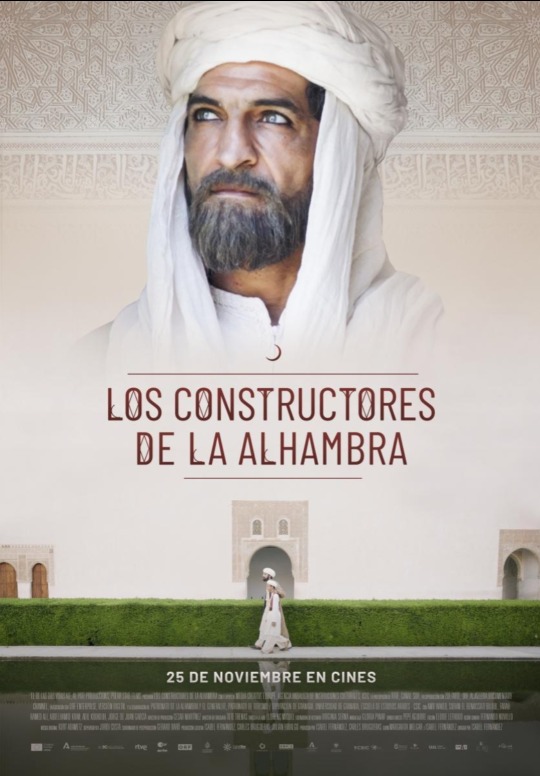
youtube
@asongofstarkandtargaryen I saw another upcoming work involving historical drama (although it's a docufilm) of the Nasrid dynasty. It could be interesting because period dramas involving the Nasrids is Isabel with Muhammad XII "Boabdil", Muhammad XIII "al-Zagal" and Muley Hacen's family, like media often focus on the last Nasrids, so it's cool to see works about other members of the family.
Synopsis
1340. Knowing that his besieged Kingdom of Granada is doomed to disappear due to the advance of neighboring kingdoms, Yusuf I, the Sultan of Granada, embarks on the construction of a building that reflects the splendor of his civilization and defies oblivion: the Alhambra palaces. His vizier, Ibn al-Khatib (Amr Waked), a poet and genius ahead of his time, participates in this colossal challenge. But when the sultan's son, Muhammad V, inherits the throne and involves him in the new policies of his reign, the vizier is torn between the ideas of his old world and the new one that is emerging. Its chronicles tell us the history of the Granada of the s. XIV, the swan song of Muslim domains of the Iberian peninsula.
Cast & Main characters
Amr Waked as Ibn al-Jatib "Lisaneddín" (15th November 1313, Loja, Granada, Andalusia-1374, Fez, Morocco). The main lineage of his family belonged to a lineage of Syrian Arabs called the Benu Alwazir, who later changed their name to Benu Aljathib and who, having passed to Spain, settled in the city of Loja, from where they moved to Córdoba, then to Toledo, and finally his father settled in Granada. The Benu Aljathib house achieved social success, wealth and large estates. His grandfather Saíd was a qadi (a judge), a cavalry general, and his father Abdallah, a man of letters and governor of Granada.
He was an outstanding young man, his education was directed by the wisest doctors of his time in theology and law, philosophy, mathematics and medicine, excelling mainly in historical and political studies. From his early youth, he experienced serious setbacks because his father Abdallah fell out of favor with Muhammad IV. He spent much of his life at the court of Muhammad V al-Ghanî, whom he served as historian and minister (guazir) and with whom he established friendly ties. He carried out high political functions, as he was appointed double vizier (“du l-wizaratayn”), which earned him the nickname of Dhû l-wizaratayn or "the man of the two vizirates". Some of his poems decorate the walls of the Alhambra.
Farah Hamed Ali as Umm al Hassan (?, Málaga, Andalusia-?). Daughter of the qadi and doctor of Loja, Abu Ya Far al Tanyali, she was an expert in Koranic readings, a medical scholar and poetress. She helped Ibn al-Jatib in his writing of the "Treat of the plague" and together they manage to state some concepts and procedures like the notion of contagion and recommended isolating the sick and destroying their sheets and rigorously described the development and spread of an epidemic.
Mehdi Regragui as Ibn Jaldún (Tunis, 27th May, 1332-Cairo, 19th March, 1406). Historian, sociologist, philosopher, economist, geographer, demographer and statesman of Andalusian origin, whose family fled to North Africa, he was born in what is now Tunisia. He is considered one of the founders of modern historiography, sociology, philosophy of history, economics, demography and the social sciences in general. He is primarily known for his work Muqaddimao (Introduction to Universal History), Prolegomena to the Book of Evidence, a record of the beginnings and events of the days of the Arabs, Persians, and Berbers and their mighty contemporaries, which constitutes an early essay in philosophy, of history and sociology, the latter discipline of which it is often considered the predecessor.
Adil Koukouh as Muhammad V (Granada, Andalusia, 4th January, 1339- Granada, Andalusia, 16th January, 1391) son of Yusuf I and Butayna. Eighth Nasrid sovereign of Granada between 1354-1359 and later from 1362 to 1391. His reign can be considered the most prosperous since the establishment of the Nasrid dynasty. Father of Yusuf II and Nars. Muhammad was enthroned at the age of fifteen under the tutelage of Vizier Ridwan, who took the reins of government. Immediately, Muhammad V ordered that Ismaíl be confined, due to the threat that he posed to his government, along with his mother and sisters, in one of his father's alcazars, a sumptuous and comfortable palace that was close to the Royal House. and where they were treated generously. Muhammad signed a peace treaty with Pedro I of Castile, becoming his vassal and ally. With regard to Aragon, initially there were some conflicts, but he ended up signing peace with Pedro IV of Aragon, although in 1358 his vassalage with Castile forced him to align with Pedro I in the War of the Two Pedros, which pitted them against Aragon. Likewise, he tried to improve relations with the Benimerin Sultanate, although the final aspirations of the Maghreb were to seize al-Andalus. Their relationship improved markedly after the accession of Abu Salim.
In 1359 for a conspiracy led by the slave Maryam, wife of his father Yusuf I, and several relatives, including his future cousin Muhammed VI, to place his half-brother Ismail II on the throne. The conspirators scaled the walls of the Alhambra and reduced the royal guard, assassinated the vizier Ridwan and freed Ismaíl, who was proclaimed sultan. Muhammed avoided death because he was in the Generalife with his son Yusuf II (grandfather of Muhammad VIII, Muley Hacen and Al Zagal) and was able to escape more quickly to Guadix, settling in his Alcazaba and later exiled himself to Fez, the capital of the Merin Sultanate. Pedro I was forced to accept an alliance with Ismaíl due to the internal rebellions in Castile of his bastard siblings, led by the future Enrique II (supported by Pedro IV of Aragón), children of Alfonso XI with Leonor de Guzmán (they had together 10 children whom Alfonso widely favored them with noble titles and a lot of political power) he was not strong enough to help Muhammad V.
Ismail II was assassinated on the orders of Muhammad VI, who took control of Granada. Muhammad V returned to the peninsula, to the territories controlled by the Benimerines, and began attacks against his cousin, taking advantage of the fact that Pedro I was already attacking the territories of Muhammad VI. After several joint attacks, Mohammed V regains his position as sultan after Muhammed VI was assassinated by Pedro I, by throwing a spear at him.
During the First Castilian Civil War (1366-1369) he remained faithful to Pedro I, assassinated in 1369 by his bastard brother Enrique II, the first king of the Trastámara dynasty, organizing the attack on various Christian border towns. After the war, he signed a peace agreement with Enrique II that opened the way to a great period of stability. Muhammad launched some measures to eliminate the influence that the Benimerines exercised over the Nasrid Kingdom and recover some territories controlled by them.
Ari Inti Ruiz Girón as young Muhammad V
Hamid Krim as Yusuf I (Granada, Andalusia, 29th June, 1318 – 19th October, 1354), seventh sultan and sovereign of the Nasrid dynasty that held power between 1333 and 1354. Son of Ismaìl I and Bahar. He had nine children: three boys and six girls. His heir Muhammad V and his daughter Isa were fathered with his slave Butayna, while Ismail II, Qays, Fátima, Mumina, Jadila, Sams and Zaynab with his servant Maryam.
Firstly he was an ally of Alfonso XI of Castile, but then he allied with the Marin Sultanate who had crossed the Strait of Gibraltar under the orders of the Sultan of Fez, Abu al-Hasan ben Uthman, and some parts of the kingdom of Granada and its surroundings were ocuppied by them, and a war between Castile and Granada started, although it ended when Alfonso XI died in 1350 due to the Black Death.
In the Alhambra he carried out great works such as the Comares Palace, one of the jewels of Andalusian architecture, while in 1349 he inaugurated the Granada Madrasa, the first university in the city. He was assassinated in 1354 while praying in the aljama mosque of the Alhambra.
Diego León García Manotas as Ismaíl II (1339 – Granada, 28th June, 1360). The second son of Yusuf I and the ninth Nasrid sovereign of Granada, who reigned from August 1359 to June 28, 1360. He was the eldest son of the second wife of Yúsuf I, Maryem, born nine months after his half-brother Muhammad V, in 1339. Conspired with his mother, sister, and relative Muhammad VI to seize the kingdom. The conspirators took the palace by surprise in August 1359. Muhammed V managed to escape with his family, first to Guadix, and then to Morocco where he obtained asylum.
At first he was his father's heir, but long before his death Yusuf named Muhammed heir. For this reason Ismaíl and his supporters overthrew Muhammed V, although the reign of Ismail II was short, barely ten months, because his brother-in-law Muhammad had his own ambitions.
Ismaíl and his brother Qays were assassinated in a prison in the Alhambra by order of their brother-in-law Muhammad VI on June 28, 1360, and he became sultan, although he was defeated by Muhammed V and Pedro I's armies.
Alicia Mohíno as Fátima
Manuel Rodríguez Pérez as Abu Ishaq al-Shatibi (?-1388, Granada, Andalusia), was a Sunni jurist who followed the Maliki Islamic school. The place and date of his birth is unknown. His family is descended from the Banu La khm tribe who trace their lineage back to Qahtan who, among many other achievements, founded an Arab kingdom in Al-Hira, near modern Kufa (Iraq). However, one of his surnames, "Al-Shatibi", points to the city of Xátiva (Valencia), indicating that he was a descendant of immigrants from that city.
Sofian El Benaissati as Ibn Zamrak (Granada, Andalusia, 1333 - 1394) poet and politician from al-Andalus. Some of his poems still decorate the fountains and palaces of the Alhambra. Of humble origins, thanks to his teacher Ibn al Jatib he was presented at the court of the Nasrids. He accompanied Sultan Muhammad V to Morocco and when Muhammad was restored to the throne of Granada in 1361 he appointed him as his private secretary and appointed him court poet. When Ibn al Jatib was removed from the office of vizier, in 1371, Ibn Zamrak replaced him and the sultan ordered him to arrest him and then send a group of assassins to kill him in the prison of Fez. Subsequently, Ibn Zamrak himself was imprisoned for nearly two years by Yusuf II and was assassinated on the order of Sultan Muhammed VII while reading the Koran in his home.
Pablo Jiménez Cantero as kid Ibn Zamrak
Jorge de Juan as Ibn al-Yayyab (1274, Granada, Andalusia - Granada, 1349) poet and politician during the Nasrid dynasty of the Kingdom of Granada. He was the predecessor of Ibn al-Jatib as vizier at court.
Of humble origins and deep religious background, his nickname seems to refer to his father's trade, which sewed the pockets of the tunics (yayb, pocket). He entered the Diwan al-insa when he was about twenty years old and remained there until his death. With Yusuf I he reached the vizirate of the kingdom. He was the oldest of the poets, and thanks to his extraordinary ability to navigate changes in power, he met six sultans, Muhammad II, Muhammad III, Nasr, Ismail I, Muḥammad IV and Yusuf I. He died during the Black Death epidemic that ravaged Europe, but apparently not because of it. He was buried in the Puerta de Elvira cemetery and the sultan himself attended his funeral. As a courtly poet that he was, he put his poetry at the service of the sultans, and the laudatory quasi are abundant in his work. A very prolific poet, he initiated a style that would later be followed by both Ibn al-Jatib and Ibn Zamrak. The discovery of his written work has allowed us to know the place occupied by the poems that were written to be carved in the palaces of Granada.
Abel Gutiérrez Romera as chief builder
More info:
Duration: 90 minutes
Based on the chronicles of the 14th century, written by the vizier and poet of the Kings of Granada Ibn al-Jatib and with a unique access to shoot in the building, the director Isabel Fernández immerses the viewer in a journey through space and time to discover the characters responsible for the construction of the Alhambra palaces, their history and the reasons that prompted them to create this unique work of art. An astral and poetic journey that explores the architectural and philosophical meaning of one of the most iconic buildings in the world.
The production of the documentary began a year ago and the release date is finally known: November 25 in theaters.
The documentary is located in the Nasrid palaces and the Alhambra and Generalife precincts, in other buildings from the Nasrid period in the city of Granada, such as the Cuarto Real de Santo Domingo and the Corral del Carbón, and in the Atarfe quarries.
The script, written by the director herself and Margarita Melgar, has had the scientific support of the best experts from the Board of Trustees of La Alhambra, the University of Granada and the School of Arab Studies of the CSIC, in an unprecedented artistic-scientific collaboration. It is the first time that the Alhambra hosts a filming of this style. It is probably the most restrictive Spanish building when it comes to authorizing filming, and perhaps one of the most restrictive in Europe. In order to film inside, the production had to assume strict conditions and design a shooting plan fully adapted to the requirements of such a special space, which is a World Heritage work of art. The international star, the French-Egyptian actor Amr Waked (Syriana; Salmon Fishing in Yemen; Lucy) brings to life the protagonist Ibn al-Jatib, a fundamental figure in the Iberian Peninsula in the 14th century, author of the Chronicle of the Kings of Granada, and which is the first-hand voice that tells the secrets of the Alhambra. Other actors of North African origin such as Sofian El Benaissati ('La Hija'; 'Skam España', 'Gigantes'), Hamid Krim ('El Cid', 'Desaparecidos', 'La dévoilée femme', 'Les de l'hoquei'), Farah Hamed Ali ('Élite'; 'Retorno a Hansala', 'El Cid', 'Vis a Vis', 'Desaparecidos'), or Adil Koukouh ('Entrevías'; 'El Cid'; 'A escondidas') complete this fresh from a time when Andalusia was one of the most advanced centers of knowledge in Europe.
'Los constructores de la Alhambra' is a production of El de las Dos Vidas A.I.E., Al Pati Produccions and Polar Star Films and has the support of Media Europa Creativa, the Andalusian Agency for Cultural Institutions, the ICEC, the Board of Trustees of the Alhambra and the Generalife, the Granada Tourist Board, the Institut Ramón Llull, and the participation of Canal Sur, RTVE, the Franco-German cultural channel ARTE/ZDF, the Austrian public television ORF, Aljazeera Documentary, Canal Sur, and ORF Enterprise. The film will be distributed in theaters by Digital Version.
In this documentary feature film, narrative elements of the traditional documentary are combined with historical recreation, CGI and digital 3D, to recreate Nasrid Granada, the Nasrid society of the 14th century and the construction process of the Alhambra palaces, highlighting the knowledge scientists that the Andalusian wise men left us in disciplines such as astronomy, mathematics, medicine, agronomy or navigation.
The narrator of this adventure is Ibn al-Jatib, chronicler, poet, scientist, physician, philosopher, and vizier. One of the most important and unknown intellectuals of the 14th century in the Iberian Peninsula. From his office in the Diwan al-Insa (the Royal Chancellery), inside the Alhambra, he reminds us and revives the history of the building. At his side we meet Yusuf I and Mohammed V, the two kings who planned the construction of the Palaces of Comares and Leones, which still fascinate visitors today with their beauty and harmony. And we will also meet the other great poet of the Alhambra Ibn Zamrak, and the doctor Umm al Hasan, disciples of Ibn al Jatib.
For its director 'Los constructores de la Alhambra' is a historical documentary fiction for the here and now and a project to bring cultures closer together and remind us that the human being that we are is built on multiple layers, and that what we often see as strange, is also part of us"
The director explains the origin of the project: “I have always been fascinated by the Muslim legacy in Europe and especially the Alhambra, which is its masterpiece. Likewise, I have always been surprised by how little has been told about this part of history and its people. That is why 6 years ago I decided to immerse myself in the history of Granada to try to understand the meaning of that building that fascinates everyone. This great story about its creation was there asking for someone to come forward and tell it. I would like it to serve to reflect on a fundamental part of who we are, and to vindicate the weight of Al-Andalus in the creation of European culture”.
"Between the 8th and 15th centuries, Muslims, Christians and Jews lived together in Al-Andalus and produced one of the greatest centers of innovation and knowledge since the classical world. Granada was the heir to that knowledge, and the last episode of that historical period. We rebuild that world to try to understand it and project its wisdom towards our present", said Isabel Fernández, during the presentation of the film at the Nasrid monument.
Its premiere is scheduled for the next Malaga Film Festival.



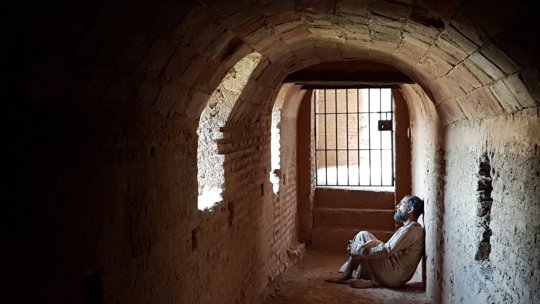
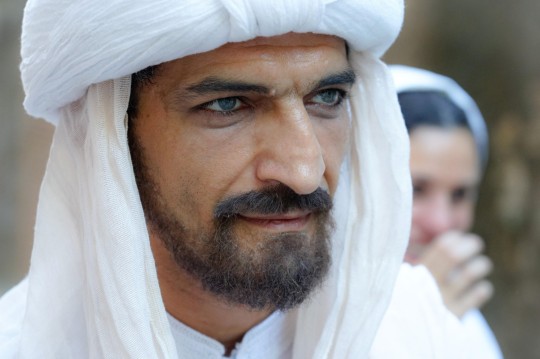
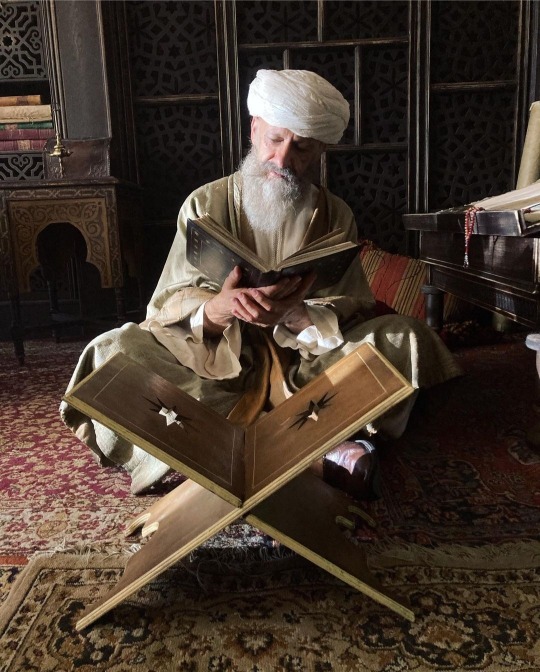

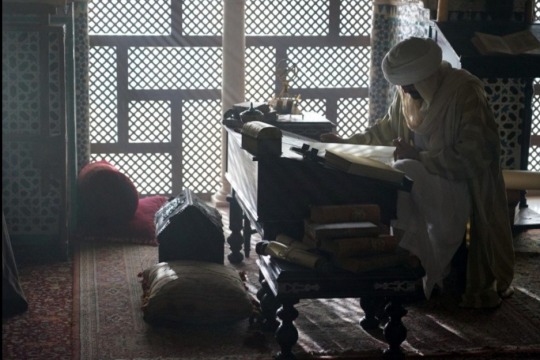

#los constructores de la alhambra#docufilm#period dramas#amr waked#farah hamed ali#medhi regragui#adil koukouh#hamid krim#sofian el benaissati#jorge de juan#alicia mohíno#muhammad v of granada#yusuf i of granada#ismaíl ii of granada#ibn al jatib#ibn jaldún#ibn zamrak#diego león garcía manotas#manuel rodríguez pérez#pablo jiménez cantero#abel gutiérrez romera#ari inti ruiz girón#ibn al yayyab#al shatibi#news#la alhambra#granada#long post#Youtube
10 notes
·
View notes
Text

So…baby Mahmood is adorable, and adult Mahmood is somehow just as adorable. Review: 🥹❤️🩹
Thanks @wafflessquad for putting together the support group 🤍
3 notes
·
View notes
Text
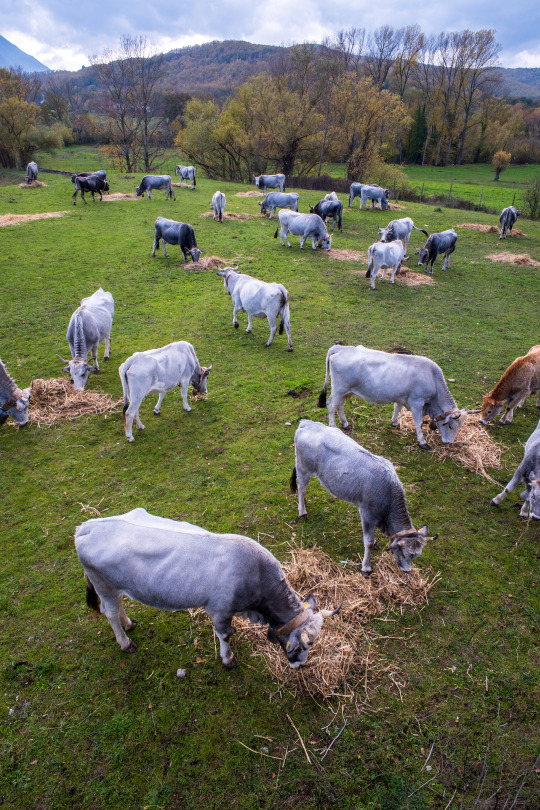


Transumanza
3 notes
·
View notes
Photo

Katia e Maurice Krafft, intrepidi scienziati che hanno girato il mondo alla ricerca di eruzioni (ed emozioni) vulcaniche. In anteprima nelle migliori arene estive e dal 25 agosto al cinema
2 notes
·
View notes
Photo

A Place of Rage, (52min, 1991), (still), Directed & Produced by Pratibha Parmar, Featuring Angela Davis, June Jordan, Trinh T. Minh-ha, and Alice Walker, Women Make Movies, New York, NY [Club des Femmes]
#art#film#docufilm#pratibha parmar#angela davis#june jordan#trinh t. minh ha#alice walker#women make movies#1990s
52 notes
·
View notes
Text
primevideoit: L’ho dimenticaaaato troppo prestooo, ma ricordo bene quando mi dicesti restoooo 🎤 🎤 🎤
📺 #Mahmood
16 notes
·
View notes
Text
Palladio: ecco il docufilm dedicato al grande architetto
Se volete guardare qualcosa di bello, vi propongo il docufilm dedicato a Palladio: il grande architetto che, come scrisse Goethe, aveva “alcunché di divino nei suoi progetti, né meno della forza del grande poeta, che dalla verità e dalla finzione trae una terza realtà, affascinante nella sua fittizia esistenza”.
Il docufilm “Palladio”, diretto da Giacomo Gatti, esplora la vita e l’opera del…

View On WordPress
#antonietta bandelloni#architettura#art#artblogger#arte#artinfluencer#bellezza#docufilm#film#Firenze#Michelangelo Buonarroti#Palladio#rinascimento#scultura
1 note
·
View note
Text
It was amazing, thank you @wafflessquad for this moment ♡
Guardatelo raga, ve lo consiglio di cuore 🤍

2 notes
·
View notes
Text
Unica, docufilm su Ilary Blasy
Ebbene sì, l’ho visto anche io. Per curiosità. Recensione su “Unica docufilm su Ilary Blasy”, l’ultima chiacchieratissima produzione Netflix.
Continue reading Untitled

View On WordPress
0 notes
Link
"Come una piuma", Magione ospita la prima del documentario su Francesca Cesarini Dai primi esercizi su quel palo piantato nel salotto di casa a Magione, Francesca Cesarini ne ha fatta di strada e ne ha aperte di strade per tutte e ...
#EVENTIECULTURA#MAGIONE#comeunapiuma#DanieleSuraci#disabilità#docufilm#documentario#francescacesarini#poledance
0 notes